Hi and welcome back to LEP. This is episode 295, and it will be the final part of this 8-part series which is inspired by my trip to the west coast of the US recently. I’m going to talk about the final part of our journey from San Francisco, down the coast via Monterey, Carmel, Big Sur, San Luis Obispo and back to LA. I’ll also talk some more about customer service and give you some tips on how to make complaints in English and how to talk to strangers in slightly sensitive situations, like when you want a person sitting behind you to stop talking because you can’t sleep. You can expect to hear those things and more in this episode.
![]() [DOWNLOAD]
[DOWNLOAD]
I started this series on 26 August, which is just under two weeks ago. So, in less than two weeks I’ve uploaded about 8 episodes and each one is about 1 hour 15 minutes long. I realise that’s a lot of content for you to listen to, and I think a lot of my listeners are quite busy catching up with all this new content. I certainly hope that this sudden arrival of 8 new episodes hasn’t put anyone off. I know from experience that when I listen to a podcast and there are lots of episodes that I haven’t heard, that it seems harder to get back into it, like you’re falling behind and it’s difficult to catch up. So, I expect that some listeners are a little overwhelmed by the number of episodes that have arrived. Not you of course! If you’re listening to this I expect it means that you’re keeping up with the series without any problems! If you’re a new listener, then welcome to my podcast. It’s for learners of English. Visit teacherluke.co.uk for more information.
Anyway, I shouldn’t be worrying about anything because I have had lots of encouraging comments on episodes in this series and I’d like to read some out and respond to them here – not all of them, just a selection.
Comments from Listeners
One piece of correspondence from a listener in the USA, called “Lea”, which is worth mentioning:
Leah: “I’ve very much enjoyed hearing all about your trip. But I need to tell you that nobody in the U.S. ever says “galoshes”, lol !! Really it’s true. I do remember when I was in school (grade school & high school), in French class, and in language text books I would see this word.
We just say “boots”, sometimes more specific like, “rain boots”, “snow boots”, “hiking boots”, “riding boots” … But NEVER “galoshes”.
Did you hear someone in California use that term??
Anyhoo, I love the podcast!!! Thank you!”
Luke: “Thanks for the correction. I feel like I should now edit the podcast to include what you said! I might do it actually.”
Leah: “Ha! Just to check myself, I asked my 14 year old son if he knew what “galoshes” were. He said “No”, but he had heard the term used in a cartoon once. He further said that he got that they meant something like, “rain boots” through the context.”
So, I just wanted to agree with Lea and emphasise that it’s not galoshes in the USA, but in fact “rain boots”. In the UK it’s ‘wellies’ or ‘wellington boots’.
Google search results:
“Galoshes”: 454,000 results
“rain boots”: 2,090,000 results
Perhaps in the USA wellies are less a part of the every day culture, and so a well-known nickname hasn’t come up. Whatever the reason, it’s ‘rain boots’ rather than galoshes.
Perhaps it’s not that important that you know the correct term for rain boots in the USA, but who knows – perhaps it could be useful. Maybe in some emergency situation, like a flood or something. “Quick we need some wellies!” “What?” “I mean, we need some galoshes! Quick!” “Sorry, I… I have no idea what you’re talking about. Are you British? I love your accent :)” “This is an emergency flood situation we need galoshes!” “Sorry – that means nothing to me. Have a nice day now, alrighty then, sorry about all this rain, but I guess you must be used to it because you’re British, right?”
“No, you don’t understand, we need rubber boots to protect us from the water, right now!! Boots, for the rain!” “Oh you mean rain boots? Why didn’t you just say?” etc.
Chriss Benitez
September 3, 2015 at 12:13 am
I love craft beer and california is the most famous place for breweries. Hoped you had lots of good Californian beers and American IPA.
I´m waiting for the Camaro photos :P, you get used to it don’t worry. I don’t have one but my Mustang is almost the same.
Great episode!!
ptholome/Antonio
August 29, 2015 at 11:38 am
WOW, WOW, WOW, WOOOOW
Hello Luke, This is a very great work you are presenting to us. I thank you for this huge effort you are doing to teach English to people all around the world.
I would say a lot about your new podcasts but even if I knew the adjectives you deserve I can only say that “Je suis resté sans voix” reading your four incredible podcasts.
I am waiting for the next podcast as impatient as people are waiting for the sixth book of the Game of Thrones.
I really only can say “BRAVO!” AND “CHAPEAU BAS MESSIEURS” (This means “hats off” or “well done!”)
Big Hug Luke
p.s. Why don’t you make a periscope each time you are going to work on a podcast?
Because watching AJ’s Periscopes for several weeks, I am surprised seeing myself waving the hand and saying bye when AJ finishes every Periscope video. I finally have the feeling that he is in front of me. It is a strange feeling, but it is really present.
Try it and be sure you are going to enjoy it, because you are going to have a real direct contact with your students. You have nothing to lose and a lot to find mainly our love and admiration.
See you
mollietai10@yahoo.com
August 27, 2015 at 3:06 pm
FANTASTIC journey with so much to offer . You give us amazing luxury through your account . What a romantic way of teaching English . WELCOME BACK ! Keep it up ! Million thanks !
petrokl
August 27, 2015 at 9:40 am
Dear Luke! Thanks for two very interesting and cognitive episodes. I found out a lot of new stuff about the US.
paquan
Hi Luke, this’s just a trivial comment, but I want to tell you that I like your jelly’s wobbling around noise making. It’s funny and cute. 😀
Rasul Ksirov
September 5, 2015 at 7:56 pm
The Eagles are single-handedly responsible for lots of people in my country mispronouncing the English word hotel as /’houtel/ – i.e. with the stress on the first syllable instead of the second. Which is funny, given that we have the same word in our own languages (Russian/Ukrainian – well, the Russian one lacks the initial h) – and it is stressed on the second syllable. But even fact is overlooked as a clue for correct pronunciation, against the popularity of the Eagles’ hit and its damaging influence on the unsuspecting English learner.
Explain yourself, I hear you say. All right, I will.
The musical metre (or rhythmic structure) employed in the chorus of “Hotel California” dictates that the word “hotel” is stressed on the first syllable thus overriding the actual word stress. Indeed, they do seem to be singing “welcome to the hOtel /’hou.tel/california” in the chorus.
This, coupled with the general notion that English learners tend to have about most two-syllable English words being stressed on the first syllable, gave rise to the infamous pronunciation error.
Myself, I was lucky enough to hear Elvis’s “Heartbreak Hotel” first, before the Eagles had led me astray with their confusing stress patterns.
Thanks for your comments everybody. Now let’s carry on with this series!
The Road Trip Continues – San Francisco
Dinner in Liholiho – an amazing Hawaiian influenced place

We’d never tasted food like this before. Some kind of battered and fried chicken, with fried broccoli and kale with cashew nuts. The broccoli in particular was amazing. Apparently they marinade it overnight and then deep fry it in soy infused oil, and the result is an amazing crunchiness combined with juiciness. We just made loads of noises during the dinner and couldn’t stop raving about the taste. Of course, we ordered way too much because we underestimated the size of the portions and ended up completely stuffed.
In fact, there’s quite a lot of Hawaiian influence in SF. It’s amazing to think that across the ocean there’s Hawaii and then Japan. It’s cool to be on the Pacific Coast. I’m more used to being near the Atlantic myself.
August 18
Extend our time in SF.
More acai bowls.
Lombard Street.
Grab some coffee in one of the many great looking coffee places on Polk Street.
Comments about annoyingly rude customer service, which happened a couple of times
Generally speaking, the customer service we experienced in California was really amazing and impressive, and maybe we got used to it because when we had bad service it seemed really obvious and annoying. This was usually from young people doing jobs they probably believed were below them, causing them to treat you with a kind of cool disdain, as if to say “I’m above this”. For example, we had a bad experience in a coffee shop in San Francisco. Two trendy girls who were far too cool, in their minds, to be serving people coffee, served us coffee in a really snooty and dismissive manner and it sort of spoiled my morning a little bit (I can’t stand unnecessary rudeness – it really gets my back up and bothers me a lot). I don’t know why. Perhaps it was my accent. Perhaps it was the fact we were tourists. Maybe it’s because it was Monday. Maybe the cafe management treats them so badly that they put in zero effort, maybe it’s the slightly specific coffee request I made, or maybe it’s just because I didn’t order the coffee just right. Maybe I’m making a big deal of it, when in the end it really doesn’t matter at all! In fact I’m probably reading way too much into this encounter and thinking about it too much. But anyway, here’s what happened:
We stood there talking about what we wanted, and there was nobody in the queue behind us. I stepped forward to make my order. There are two girls behind the counter and they’re standing back a bit, having their own private conversation. I notice that the girls are talking about us, and not nicely. They’re sort of talking under their breaths and glancing at us. I wonder what we’ve done wrong and try to ignore it. Time to get the coffee. I wait a little bit for the girl to come over. I feel like I’m annoying her. I start talking to the girl at the cash register.
Her: “Can I help you?”
Me: “Hi, can I have one black coffee of the day…”
Her: *sighs* “So, you mean one regular dark coffee?” (she says, putting the order into the till. There’s probably a button that says “dark coffee” but no button that says “black coffee”)
Me: “Ok, sure. And an espresso, with…”
Her: “And a single espresso”
Me: Yes please, with just a little bit of hot water added.”
Her: *Sighs again and gives her friend a look*
Me: *Thinks: what the f*ck is going on here?*
Her: That’s gonna be 5.25.
Me: OK, here you are.
Her: “Your coffee will be delivered over there”
Me: “Thanks”
Her: No response. She’s already turned away from me. The transaction is finished.
The other girl then shouts “Single espresso with hot water!” even though there are no other customers around and she heard the entire transaction and I’m just standing right there, and puts the coffee on the top.
I go to pick up the coffee from her, and I say thanks, but she’s not looking at me. She’s turned away and is doing something else. I feel totally unwelcome and I don’t know why. Did I just destroy the environment again without realising it? What did I do wrong?
This really ‘did my head in’ for some reason. What happened? Did I order the coffee slightly wrong? Is it because of my accent? Why is it necessary to serve me my coffee in a miserable way because you feel that you’re above this job?
Maybe I’m way too sensitive, and after all it’s just a couple of coffees but this put a downer on me for about an hour until I got over it. (My wife got over it instantly, but I had a little dark cloud over my head for about an hour as a result of it) As we walked around I speculated about why they seemed so rude.
It reminded me of a routine by Louis CK about exactly this topic. I might play it to you right now because you might find it amusing, but there are some swear words that I’ll edit out because I’d like this episode to be a clean one. So, I think I’m going to play that to you, or at least just embed the video on the page for this episode. We’ll see…
So, in the end, there’s no excuse for being so rude!
How to make the right impression on a waiter
I just want to reiterate something I said in an earlier episode about dealing with waiters and other staff, because this struck me as being quite important, and as I was a foreigner in an English-speaking country it made me realise how important this is.
Remember that staff are just doing their job and you can help make it a little easier for them by showing that you understand that.
So, help them to do their job, don’t make it extra hard for them.
Smile, be friendly and respectful. Don’t have the attitude that this person is your own private slave for the evening and they should have infinite patience and they have no right to complain or be unhappy about your behaviour. This is unrealistic and rude. The waiter is a human being and they might be tempted to spit in your salad.
So, smile and be nice.
When the waiter asks how you are, respond positively, and ask how they are too.
Don’t forget to say please and thank you. Definitely show your appreciation if a waiter has done something special for you.
If in doubt, tell them it’s your honeymoon.
-How to ask for an upgrade in a hotel (this worked for us a few times)
Tell them it’s your honeymoon.
-How to make small requests
Certain phrases are useful.
“Is there any chance you could…?”
Tell them it’s your honeymoon.
E.g. “Is there anything you can do or recommend in order to make our stay even more special? It’s our honeymoon, and we want this to be a really special and memorable stay.”
We got a few hotel room upgrades, and also some free fruit and wine, and in one place they wrote a special message on our mirror, and another place gave us a card. One guy gave us some free bottles of water because it was the only thing he could offer. Everyone seemed genuinely happy for us and it broke the ice quite nicely.
California Diary Continued… 18 August
Union Square.
Drive to Monterey.
Another Japanese restaurant!
August 19
Next it’s Monterey. Beautiful coastal town, but not much more than the aquarium.
Touristy place near the old cannery, where the aquarium is now.
I visit, and the wife goes to the beach.
Wildlife from the waterfront (whales, otters, sea elephant “it’s a whale!”)
Then to Carmel.
Beautiful sunset on the beach with whales and dolphins in the water.
All about Carmel.
August 20
Another day there, including the beach.
17 Mile Drive.
This is an incredibly beautiful and rugged area with stunning coastline. It’s also right next to the Pebble Beach golf course, which you might know.
More whales and dolphins seen. It’s quite touristy, but nice.
By this time we’ve had lots of sun, sand and sea air and we feel like we’ve really absorbed the atmosphere of the place, so we’re feeling very relaxed and cool.
Highway 1 (coastal highway) through Big Sur. Epic views. One of the most stunning and attractive drives ever. Many romantic moments and photos on the way, with the sunset.
San Luis Obispo – the happiest town in America?
Audiobook recommendations
I just wanted to remind you about the audiobooks I’ve recommended in this series. Here are those titles again, just in case you wanted to check them out. Remember you can get a free audiobook if you sign up to a trial membership with Audible.com, which is the internet’s top provider of downloadable audiobooks. They have hundreds of thousands of audiobooks available. Go to audibletrial.com/teacherluke – you can try it out for 30 days, download an audiobook free, and if you don’t like the service just cancel your membership but keep the audiobook. All the details are on my website. Audibletrial.com/teacherluke or click a button on my site that says Audible.
Let’s just re-cap the titles I’ve recommended so far.
The Big Sleep by Raymond Chandler
The Grapes of Wrath by John Steinbeck
Scar Tissue by Anthony Kiedis
The “For Dummies” series – e.g. English History for Dummies
On The Road by Jack Kerouac
One Flew Over The Cuckoo’s Nest by Ken Kesey
August 21
Next day…
Slight miscalculation of distance and a satnav error and we end up missing Malibu and getting stuck in a huge traffic jam in LA.
Last evening – super trendy vegetarian restaurant with a live jazz band. Huge place.
August 22
The problem with the rental car.
Getting fobbed off by Avis.
Fixing it the next day. Describing the story, being clear about what the problem is, taking emotions out of the equation, being clear about what you expect, showing that you’re not happy…
Explaining what happened is very important.
Making sure the person knows exactly what the point is, is very important.
How to make a complaint. (After the Avis situation)
Say that you’d like to register a complaint. Many companies have official channels and ways of dealing with complaints, that might include some rectification. Be clear from the beginning that you are making a complaint, or the staff might just try to fob you off.
Ask to speak to a manager. This shows that you mean business.
Ask for the names of the people involved and write them down. Again, you mean business.
Ask for evidence of anything important – e.g. a print out of a new rental agreement with a price adjustment. Don’t take anyone’s word for it. You’re in a legal area here, so you need paper evidence!
Explain the background story quickly and simply. They need to know what happened.
Be firm and confident and businesslike. Don’t get too personal or emotional.
Explain what you want.
Remember that these people are just doing their jobs.
Tell them it’s your honeymoon.
How to ask people to stop talking on a plane. (During the return flight)
Remember that the people doing the talking are probably going to take it really badly or personally. How would you react if someone told you to be quiet on a plane?
Do not bring all your anger and frustration to the first comment. Be utterly reasonable, giving them no choice but to respect your wishes. If they don’t like you or find you unreasonable, they won’t want to comply.
Say things like “I don’t want you to stop talking, but…”
Explain why you would like them to stop.
Again, don’t get emotional, aggressive or angry, but you can say it firmly without being aggressive.
“I’m really sorry to bother you, I don’t want you to stop talking, but could you please try to do have your conversation more quietly? It’s just that nobody else is talking, and we all need to rest and I can hear every word you are saying!”
It would be pretty hard not to say “Oh, sorry!” in response to this.
If you just turn round angrily and say “shhhhh!” then I’m sure they’d be less willing to comply – remember, they’re not aware of all the anger and frustration that’s been building up inside you, so you’ll just look like an insane person, and you’ll have a couple of enemies on the flight.
Final tip: Tell them it’s your honeymoon.
American English Vocabulary vs British English Vocabulary
This is a mix of things like games, job titles and household items.
Wardrobe – Closet Furniture
Plaster – Band-Aid Personal Care
Ladybird – Ladybug Insect
Noughts and Crosses – Tic Tac Toe Game
Draughts – Checkers Game
Flat – Apartment Housing
Tap – Faucet Furniture (sink)
Lift – Elevator Housing (in a building)
Torch – Flashlight Household Item
Football – Soccer Game
Estate Agent – Realtor Job
Rubber – Eraser Stationery
C.V. (Curriculum Vitae) – Résumé Job
Spanner – Wrench Tool
Autumn – Fall Season
Holiday – Vacation
Canteen – Cafeteria Room
In Conclusion
We had an absolutely fantastic time travelling around California. It has so many things to offer, including lots of things that we didn’t get to see. Two weeks are not enough, and the time went by so fast that it was almost over before it had started! It is a wonderful place for a honeymoon, and in fact for all types of holiday – for single people, honeymooners or families. I would definitely recommend it, although it is a bit expensive in some areas, particularly San Francisco and the coast. All in all the people were really friendly, the weather is fantastic and there are loads of impressive and entertaining things to see and do. There is plenty of really amazing food, which is a contrast to the stereotype of USA with its unhealthy food culture. The landscape is varied and beautiful and there’s a lot of shopping to be done as well. We’d love to go back one day and see lots of other things we missed. We shared a really special two weeks that we’ll remember forever.
I really hope you’ve not only enjoyed this account of my trip, but that you’ve also learned some things too. My intention has been to not just share our travelling experience with you, but also to just invite you to think about the culture, history and geography of the place along the way, as well as teach you some English.
I’m going to upload photos of our California trip on this page, or on each page in this series. Check them out – it might help to bring some of my descriptions to life a bit.
As ever, leave your comments on the pages for these episodes with your thoughts, feelings and questions. Join the conversation at www.teacherluke.co.uk
That’s it for now, until the next episode.
Take it easy.
Luke










































































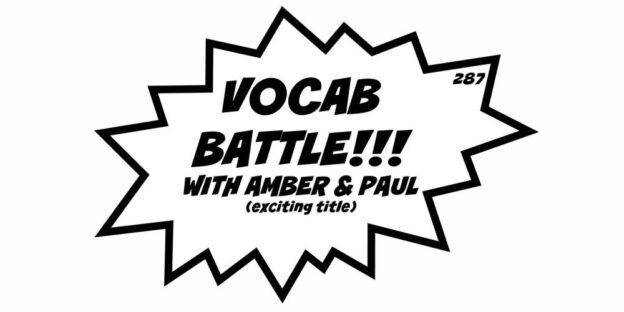
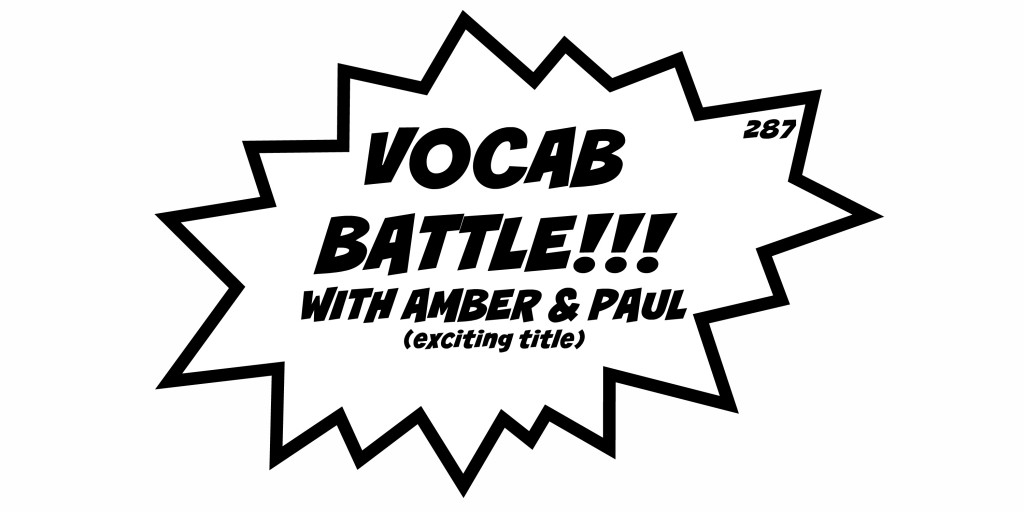
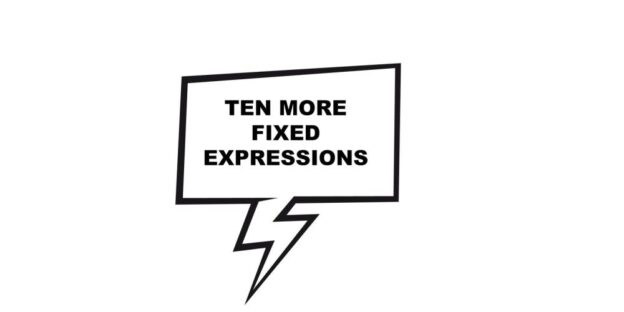

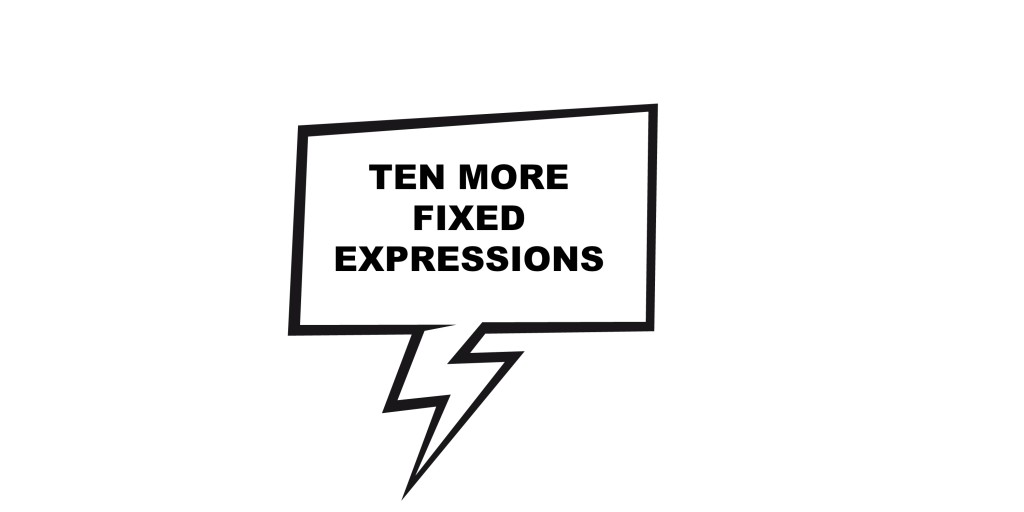

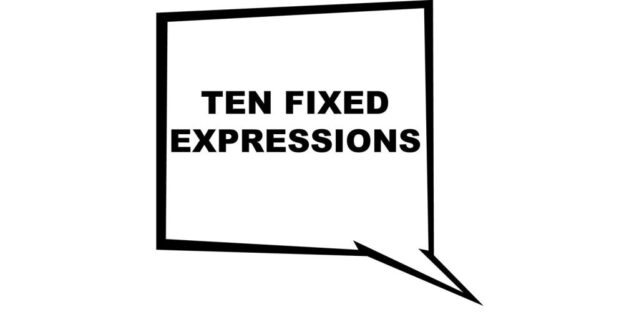
 1. Magpies
1. Magpies